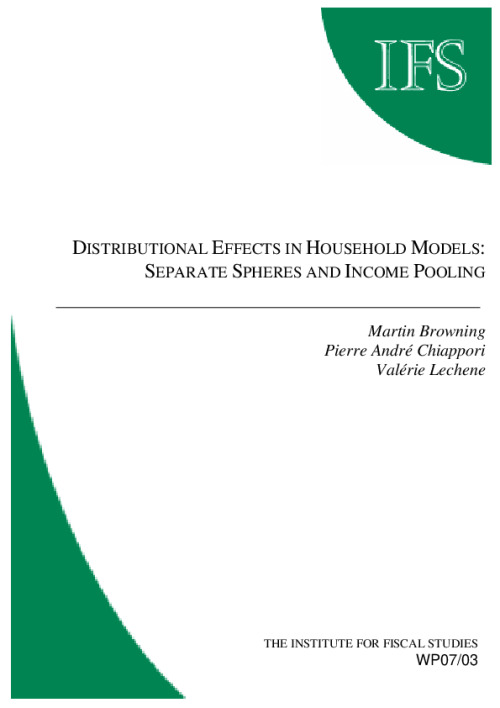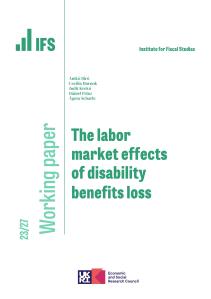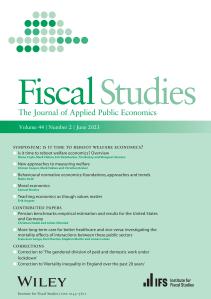Downloads

wp0703.pdf
PDF | 195.33 KB
<p>We derive distributional effects for a non-cooperative alternative to the unitary model of household behaviour. We consider the Nash equilibria of a voluntary contributions to public goods game. Our main result is that, in general, the two partners either choose to contribute to di¤erent public goods or they contribute to at most one common good. The former case corresponds to the separate spheres case of Lundberg and Pollak (1993). The second outcome yields (local) income pooling. A household will be in different regimes depending on the distribution of income within the household. Any bargaining model with this non-cooperative case as a breakdown point will inherit the local income pooling. We conclude that targeting benefits such as child benefits to one household member may not always have an effect on outcomes.</p>
Authors

Research Associate University of Copenhagen
Martin is an IFS Research Associate, a Nuffield Senior Research Fellow and a Professor of Economics at the University of Oxford.

Research Fellow University College London
Valerie, a Research Fellow of the IFS, is a Reader at the University College London, whose research is focused on modelling intra-household behaviour.

Columbia University
Working Paper details
- DOI
- 10.1920/wp.ifs.2007.0703
- Publisher
- IFS
Suggested citation
M, Browning and P, Chiappori and V, Lechene. (2007). Distributional effects in household models: separate spheres and income pooling. London: IFS. Available at: https://ifs.org.uk/publications/distributional-effects-household-models-separate-spheres-and-income-pooling (accessed: 30 June 2024).
More from IFS
Understand this issue

Election Special: Your questions answered
27 June 2024

What is the two-child limit in benefits?
27 June 2024

Election Special: The Labour manifesto explained
14 June 2024
Policy analysis

What are the parties’ plans for benefits and taxes?
24 June 2024

How would the parties’ tax and spending plans affect Scotland and Wales?
28 June 2024

The two-child limit: poverty, incentives and cost
17 June 2024
Academic research

The labor market effects of disability benefit loss
29 September 2023

Is it time to reboot welfare economics? Overview
5 September 2023

The menopause "penalty"
18 March 2024